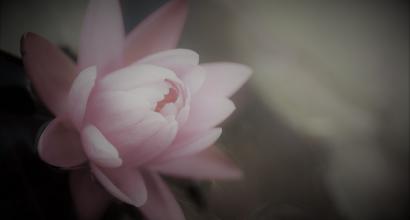Qualities like truth and purity are not the special property of brahmins. They are to be practised by others as well. Why did we specially mention them as brahmaṇic qualities? The real meaning is that an excellent, exemplary brāhmaṇa behaves thus, and these qualities are easily practised by him; therefore other varṇas should also try to emulate him and earn those qualities — this is the real meaning.
ṣve sve karmaṇyabhirataḥ saṃsiddhiṃ labhate narah ।
svakarma-nirataḥ siddhiṃ yathā vindati tacchruṇu ॥BG 18.45
Everyone should be engaged in their natural duties. A man’s capability is not decided based on whether the work he has secured is big or small; however insignificant his job is — even if it is only to sweep the road — the quality of his work, the devotion he shows towards his job, his enthusiasm and skill — decide his worth.
During this discussion, it is worthwhile to remember this piece of advice that Sir M Visvesvaraya, the celebrated engineer and the administrator par excellence, gave to young engineers.
“The bulk of the work in the districts is of a very ordinary character, but it is not on that account to be despised. Many a young engineer may find no higher work to design or construct than a road-culvert or a tank-sluice. A dispensary or a dak bungalow may be his dream in architecture. But whatever the work, if the designs are to be proper and economical, a close study of local conditions and a correct knowledge of how similar work is best done elsewhere are very necessary. The young engineer may lay to heart the advice which Mr. Moberly Bell of the London Times gave on similar occasion. “If your business,” said he, “is only to sweep a crossing, remember that it is your duty to make that crossing the best swept in the world.”
(14th November 1910)
The performance of one’s dharma through the performance of one’s own duties is indeed the worship of the divine. He who is engaged in the performance of svadharma attains siddhi.
That it is possible to attain siddhi through the performance of one’s dharma is one of the cardinal teachings of the Gītā.
yataḥ pravṛttir bhūtānāṃ yena sarvam idaṃ tatam |
sva-karmaṇā tam abhyarchya siddhiṃ vindati mānavaḥ ||BG 18.46
“The energy and direction for all actions of every being arise from that root consciousness that has brought forth the entire universe from within itself and pervades it inside out. He, having worshipped the supreme consciousness through the performance of duties that are natural and obligatory to him, attains the greatest siddhi.”
This śloka is pregnant with much meaning. There is likely no better or more apt description of Brahman than this. Neither is there a more concise elucidation of the method to worship Brahman. All-pervading Brahman is the source of every being’s inner urge that prompts it to perform an action or not. When the impurities of a jīva - its guṇas and tendencies accumulated through a beginningless succession of lives - are cleansed, the jīva attains the true experience of his own Self. The mechanism to cleanse oneself of such impurities is dharma in the form of purifying works prescribed via one’s varṇa or family or stem from one’s own innate character. Thus, the path towards self-knowledge proceeds through the performance of works that 1. are prescribed by the śāstras, 2. are useful to the world, and 3. purify the jīva. Whatever action has to be performed should be performed dexterously and efficiently.
śreyān sva-dharmo viguṇaḥ para-dharmāt svanuṣṭhitāt
svabhāva-niyataṃ karma kurvan nāpnoti kilbiṣamBG 18.47
“Though not much virtue might be seen in svadharma, it is more beneficial than another’s dharma that appears to be more virtuous. One does not incur pāpa by performing karma attuned to one’s own nature.”
Trading in meat, even if more profitable than the profession of teaching, is not the dharma of a brāhmaṇa. Though a butcher might prefer acting in plays or in cinemas over his own profession that he does not like so much, his own family business is his dharma. If one does not perform one’s dharma, he is subject to pāpa. This is the principle explained in the tale of Dharmavyādha[1].
sahajaṃ karma kaunteya sa-doṣam api na tyajet
sarvārambhā hi doṣeṇa dhūmenāgnir ivāvṛtāḥBG 18.48
“One should not give up duties that are part of one’s nature and are established through one’s own community, even though they might seem to be faulty from others’ perspectives. Every profession in this world is fraught with one defect or the other - just as fire is always enveloped in smoke.”
Hariśchandra, due to circumstances of time and duty, had to stay guard at a funeral-ground. Was that a joyous duty? It does not seem so to us. When fate brought him to that place, he had to fulfil his duties as they had to be fulfilled. Thus, even when his wife Candramatī carried the corpse of their son Lohitāśva, he insisted, “The fee due here must be paid”. There is no place for likes and dislikes during the performance of one’s duty.
All the smṛtis accept the opinion stated above. Manu has clarified the same. The following ślokas from the atri-saṃhitā state the same succinctly with no scope for doubt.
svāni karmāṇi kurvāṇā dūre santo’pi mānavāḥ ।
priyā bhavanti lokasya sve sve karmaṇyavasthitāḥ ॥Atri saṃhitā 8.41
Those men immersed in their own duties, even if they are afar, are liked by the world.
ye vyapetāḥ svadharmebhyaḥ paradharme vyavasthitāḥ ।
teṣāṃ śāstikaro rājā svargaloke mahīyate ॥That king, who chastises those established in others’ duties while neglecting their own, reigns in svarga.
ātmīye saṃsthito dharme śūdro’pi svargamaśnute ।
paradharmo bhavet tyājyaḥ surūpa-paradāravat ॥Even a śūdra established in his own dharma attains svarga. Thus another’s dharma is to be discarded like another’s wife, beautiful though she might be.
Plato, the pre-eminent Greek philosopher and considered the foremost among truth-seekers from all over the world, has again and again elucidated the concept of svadharma in his Republic - bolstering it with arguments and examples.
“Justice is the having and doing of what is a man’s own and belongs to him”
Republic. Book IV.
Can an activity that has no touch of pāpa even exist? Though every activity has the possibility of association with pāpa, it should not become an excuse for us to stay away from action. Activity has to be performed. The question is whether it attaches to us or not. If the activity in question comes to us naturally as an obligation, there is no attachment. There are several situations in which we may have to do something that we either do not like or is not considered proper by society at large. Bhagavān refers to activities as - “aniṣṭamiṣṭaṃ miśraṃ ca” - those that we like, those that we do not like and those that we like partially. Whatever may be the obligatory duty, there is no defect in its performance as long as there is no tinge of selfishness. That indeed is phalatyāga (giving up the fruit of actions) and the essence of saṃnyāsa (renunciation). When we perform karma in that manner, our impurities in the form of the three guṇas are eroded. Our vāsanas (latent tendencies) are weakened. Qualities, virtues, and strengths that are hidden in our psyche are brought to light. This is conducive to goodness in the world. Erosion of the jīva’s debts and impurities and an expression of the jīva’s sattva make it easier to attain paramātmā.
However, in the twelfth chapter, Bhagavān instructs us to give up all endeavours!
sarvārambhaparityāgī yo madbhaktaḥ sa me priyaḥ |
BG 12.16
Whatever may be the endeavour, it is not free of one defect or the other. This is the instruction from the twelfth.
But in this chapter, Bhagavān mandates us to perform suitable activity without worrying about accompanying defects, for no action is truly defect-free. Thus on the surface, there seems to be some disagreement between these two teachings. There is another verse that resolves this inconsistency.
yasya sarve samārambhāḥ kāma-saṅkalpa-varjitāḥ |
jñānāgni-dagdha-karmāṇaṃ tamāhuḥ paṇḍitaṃ budhāḥ ||BG 4.19
There is the possibility of an iota of pāpa in all human activity. Even so, there is a strategy to completely negate even this sliver of pāpa from our activities. The strategy is an attitude of desirelessness. “It is not me who acts. This action is not for me. Whatever is done is being done in subservience to Bhagavān. The guṇas of prakṛti make us act. Results of those actions accrue to us via the laws of karma. I am ready for any kind of result. The decision to perform karma is not to be made from the perspective of my benefit, enjoyment, or prestige. By virtue of prior karma, I have attained a certain position and a specific set of opportunities in the world. It is from this understanding that I can decide upon dharma. My karma follows suit.” An action performed with the sole sense of duty after exercising such discernment does not result in pāpa, for there is no ego in it but obedience towards Bhagavān. This is the essence of the principle of karma.
To be continued...
The present series is a modern English translation of DVG’s Kendra Sahitya Akademi Award-winning work, Bhagavad-gītā-tātparya or Jīvana-dharma-yoga. The translators wish to express their thanks to Śatāvadhāni R Ganesh for his valuable feedback and to Hari Ravikumar for his astute edits.
Footnotes
[1]The tale of the butcher from the Mahābhārata’s vana-parvan.

















































